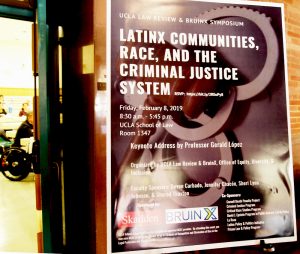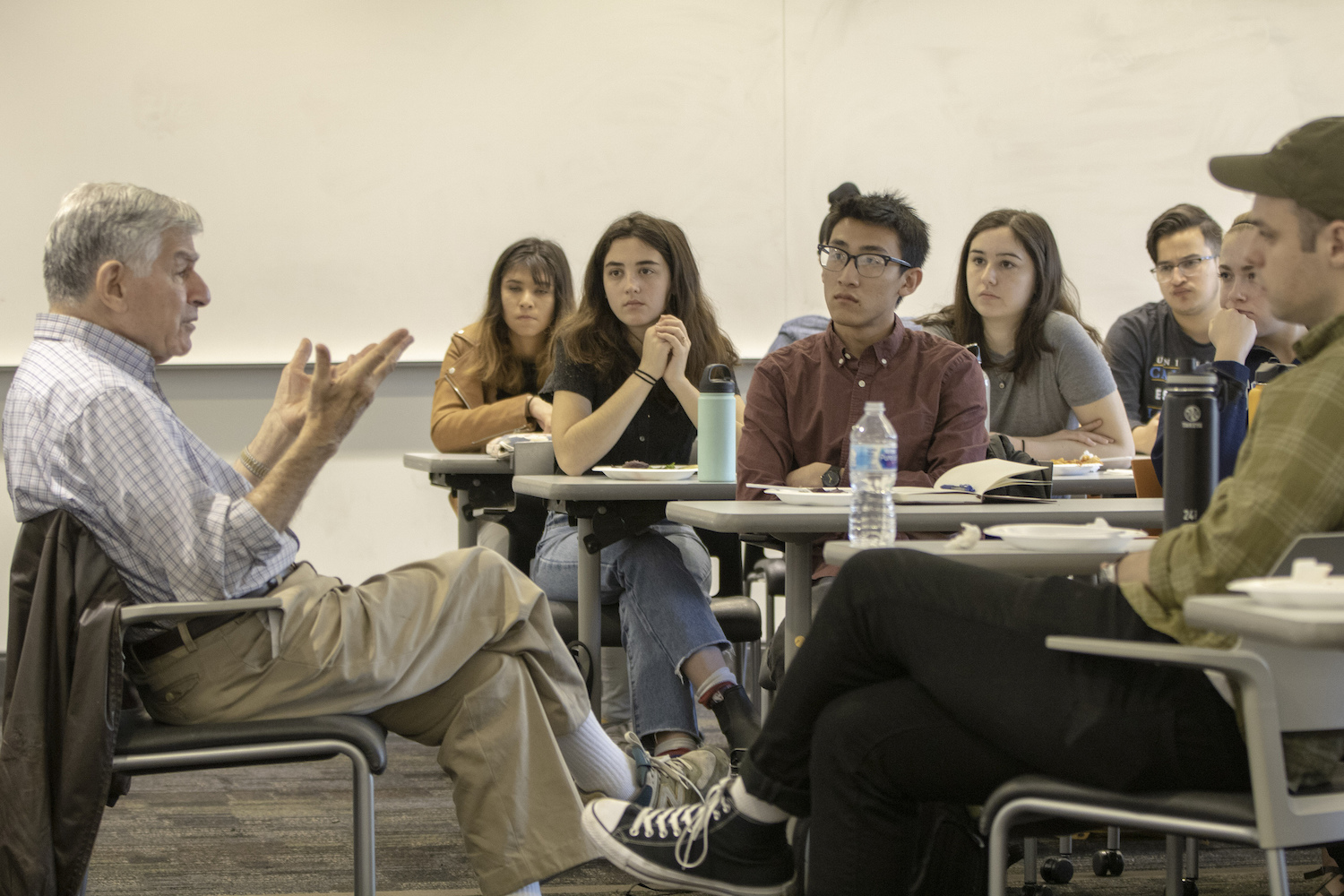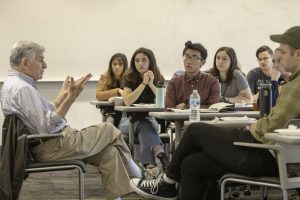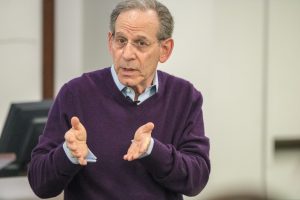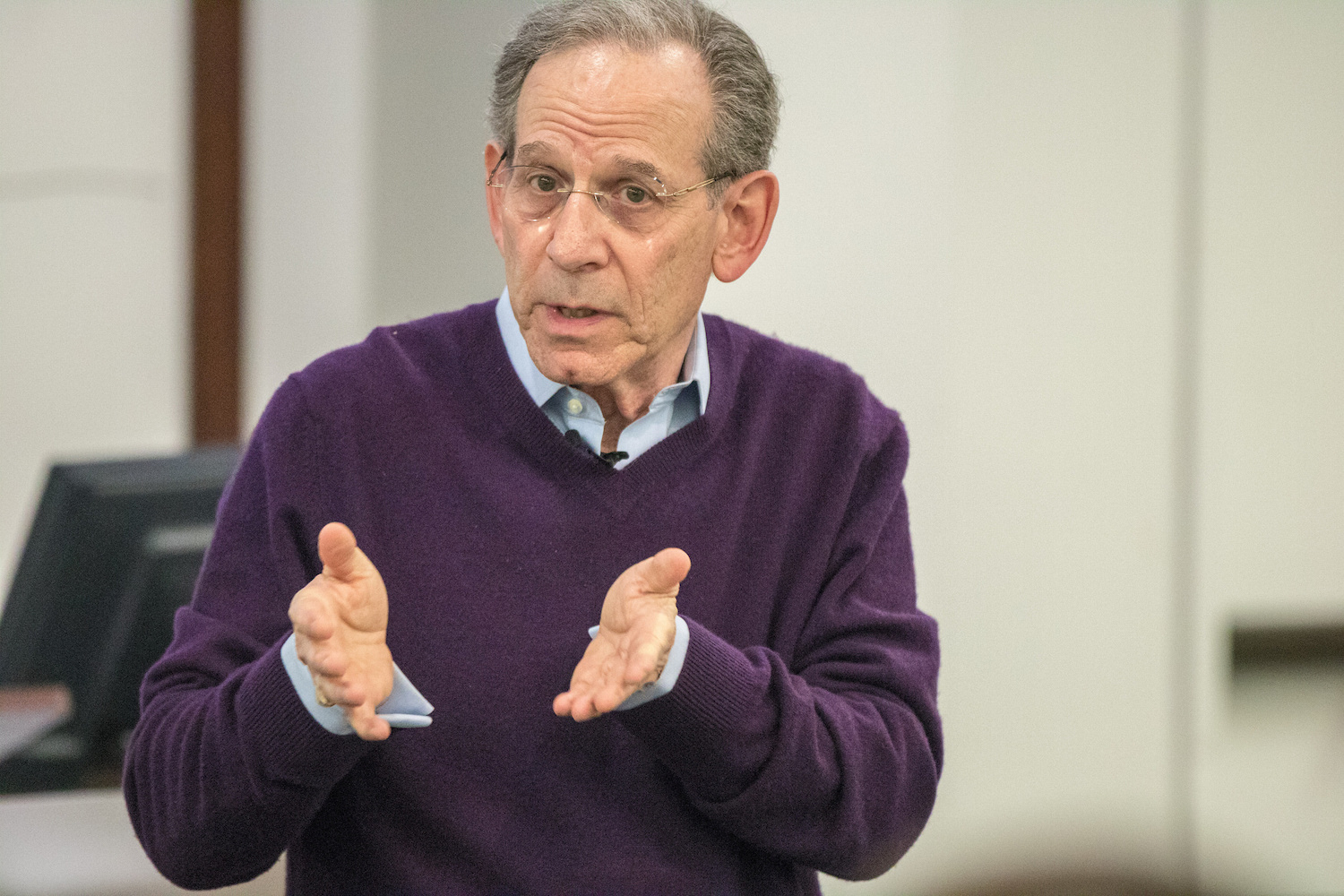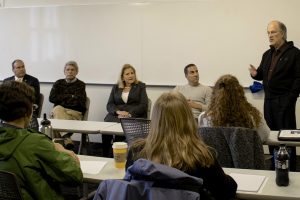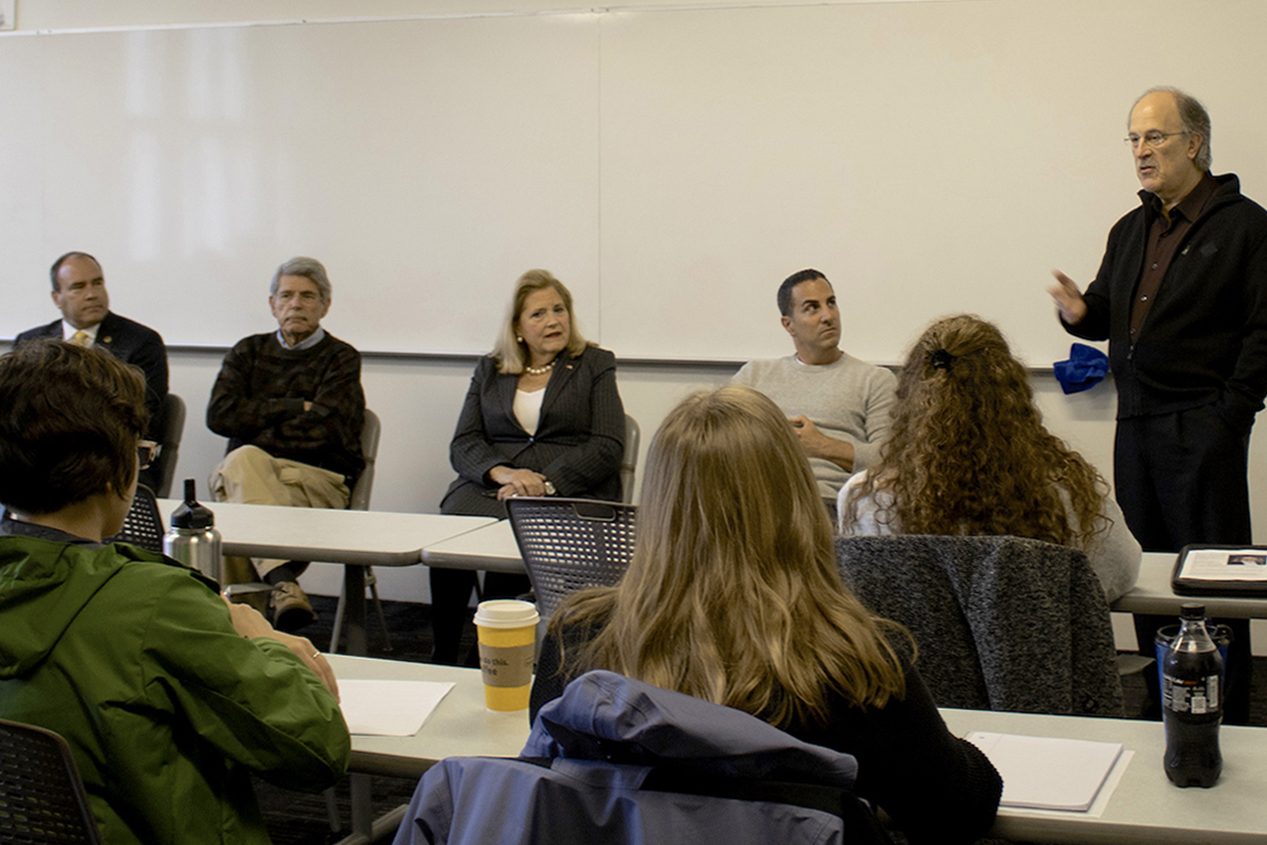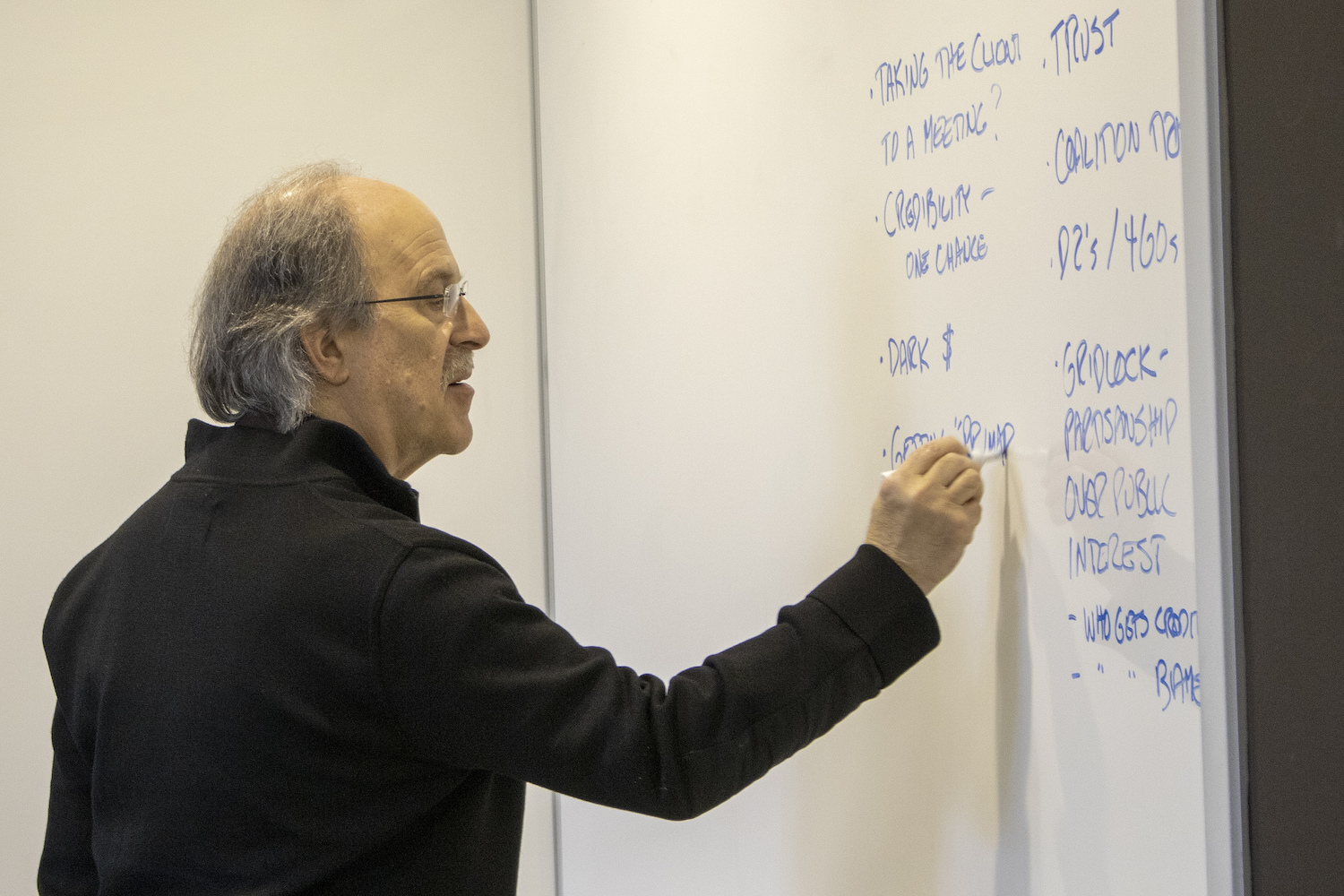By Stan Paul
“If government is so dysfunctional, why should I work there?”
That question guided a noontime discussion hosted by Visiting Professor of Public Policy Steven Nemerovski on Feb. 20, 2019, at the UCLA Luskin School of Public Affairs.
One answer, Nemerovski said, is that when nothing is getting done — at the federal level in particular — “that’s the time when you need talented people the most.”
Nemerovski is one of three visiting professors — all with decades of experience — at UCLA Luskin in the winter quarter. Citing his own unique career path, which has spanned politics, government, business and law, the adjunct professor at Columbia University’s School of International and Public Affairs encouraged the gathered students to consider government as a starting point for developing a successful and multifaceted career.
“There is no right way” into politics, said Nemerovski, who is teaching an undergraduate and graduate-level course in advocacy and legislation. He said government experience should be looked at as an extension of education, an early step in a student’s career process. “You have to go into it thinking that way,” he said.
Another teaching visitor this quarter is Gary Orren, the V.O. Key, Jr., Professor of Politics and Leadership at Harvard University, who is again teaching a graduate course “Persuasion: Science and Art of Effective Influence,” which he says “lies at the heart of our personal and professional lives.”
Orren, who has taught at the East Coast institution for nearly half a century, is also able to share his experience as a political advisor in local, state, national and international election campaigns.
Michael Dukakis, former Massachusetts governor and 1988 Democratic presidential nominee, has also returned to campus this winter, as he has for more than two decades. Dukakis is co-teaching a course on California policy issues in the School’s new undergraduate major as well as his graduate course on institutional leadership.
In January, Dukakis led a Learn-at-Lunch discussion with UCLA undergrad students on the 2020 campaign. He noted that, since the 2016 election, young people’s interest in politics has increased dramatically and current events have only fired them up.
“They are streaming into my office asking about public service,” he said.
That sentiment was heard at the lunchtime conversation with Nemerovski, who offered a number of career lessons and insider tips.
Nemerovski, who has served as an attorney in government service, a campaign manager and lobbyist, and now president of a consulting firm specializing in advocacy at the state and federal levels, explained that his own career path did not start in a straightforward way or as early as he recommends to students.
He highlighted the importance of “picking a team” and “finding a cause” — of connecting passion with expertise. Admittedly, he said, he did not have a particular calling from the start in his home state of Illinois, but by becoming involved in lobbying, he developed a true career-long passion for health care issues.
He cautioned that becoming an expert can only get a person so far and stressed the importance of establishing relationships. He said he still has important connections from more than four decades of work in his various roles, and he has invited many in his network to speak to his classes. This quarter, Nemerovski’s students had the opportunity to hear from several current and former legislators from Illinois and California.
One of the many benefits of maintaining relationships with people throughout a career, he said, is that “you will grow with them.”
Nemerovski also shared a few enduring political rules of thumb: “In the world of government and politics, you have to be from somewhere” and “We don’t want anybody that nobody sent.”
And in launching and nurturing a career involving work in and out of government, Nemerovski said, “There’s nothing wrong with a little luck.”
